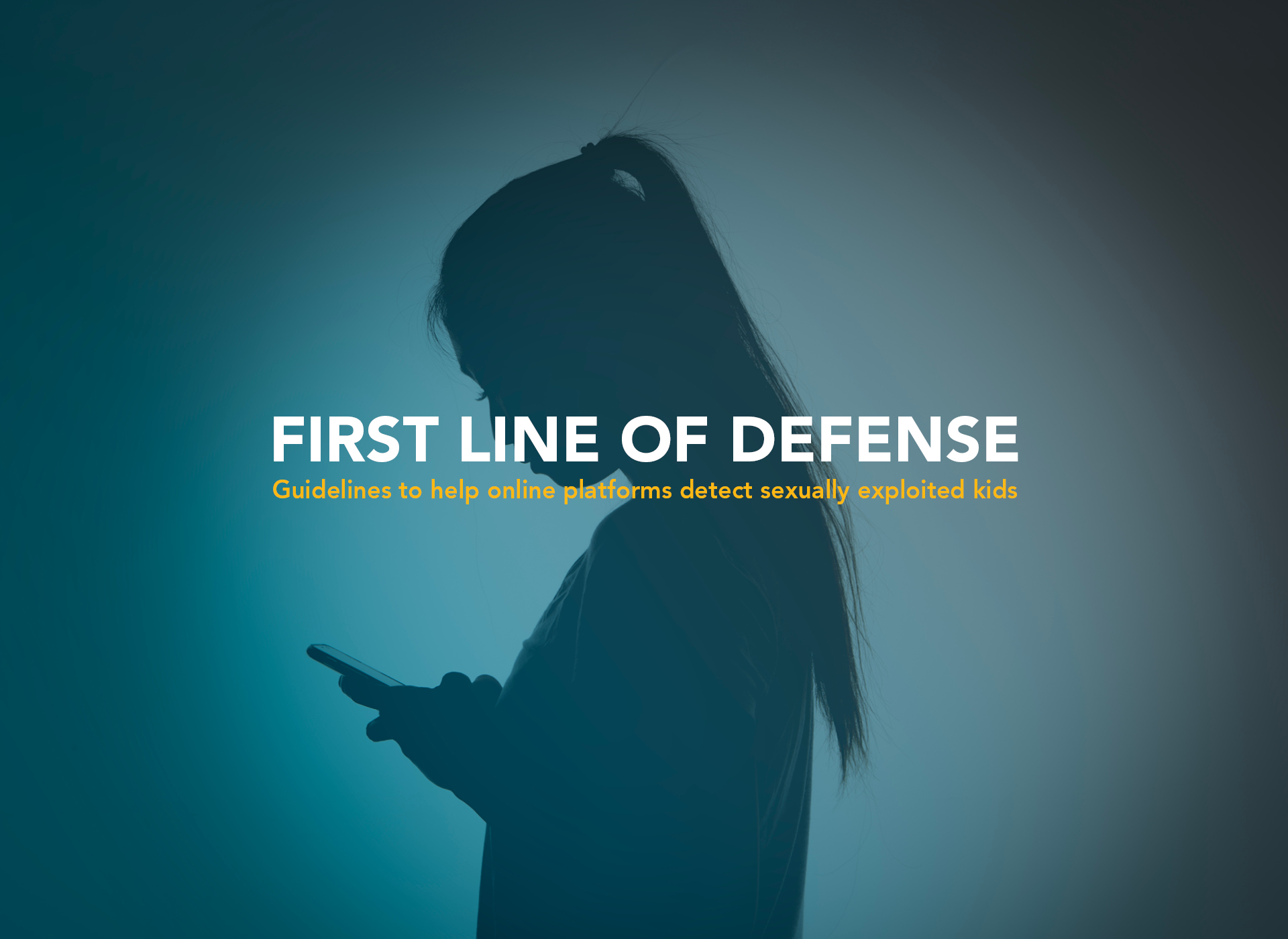Today, the National Center for Missing & Exploited Children (NCMEC) released guidelines for online platforms to help them comply with a new law revolutionizing efforts to combat online child sexual exploitation, specifically child sex trafficking and online enticement.
The internet has become a thriving marketplace to sell children for sex and provides offenders with easy access to children to entice them to meet in person for sexual acts and to extort them for sexual images or money. These guidelines are intended to help online platforms play a crucial role in protecting children by recognizing key signs and indicators of child sexual exploitation.
The bipartisan bill, known as the “REPORT Act,” was enacted in May and gave NCMEC the opportunity to issue guidelines for U.S.-based online platforms that are now required to report child sex trafficking and online enticement to NCMEC’s CyberTipline. Prior to passage of the new law, online platforms were not required to report these crimes.
“Adult offenders often groom children and teens in such a way that makes it hard, if not impossible, for them to see through the lies and false promises,” said Michelle DeLaune, president and CEO of NCMEC. “Being required to report suspected child sex trafficking and online enticement will allow online platforms to become a first line of defense to safeguard child victims.”
The CyberTipline is the U.S. designated mechanism for reporting suspected online child sexual exploitation. NCMEC leveraged the information available in millions of missing and exploited child reports made by online platforms, law enforcement, child welfare, parents and survivors to develop the REPORT Act guidance. NCMEC’s unique perspective, driven by actual reports, was further informed by a group of adult survivors with lived experience relating to child sexual exploitation. This powerful combination of data and lived experience provides online platforms with clear and actionable guidance.
“Every day at NCMEC, we see examples of grooming, enticing and the active sale of children for sex occurring online,” said Staca Shehan, who oversees our child sex trafficking team. “But historically, we’ve received a smaller number of these reports from online platforms. We’re hopeful this guidance, based on real examples of these online crimes, provides industry with the tools and information it needs to recognize and report them to NCMEC’s CyberTipline.”
Among other significant improvements, the REPORT Act enhances efforts to identify child victims in child sexual abuse material, provides more support to survivors and improves their ability to seek restitution against offenders. The act also extends the time online platforms must retain content from 90 days to one year to give law enforcement more time to investigate the relentless stream of reports. Click here to see a summary of the REPORT Act.
U.S. Senators Marsha Blackburn and Jon Ossoff and Congresswomen Laurel Lee and Madeleine Dean co-sponsored the REPORT Act.
---
To learn more about online child sexual exploitation and the CyberTipline, please visit www.ncmec.org.

